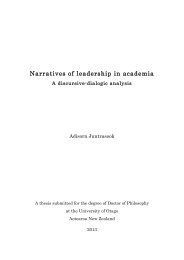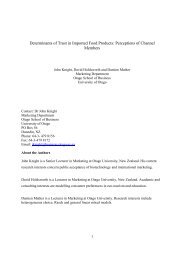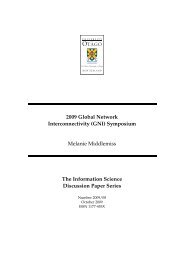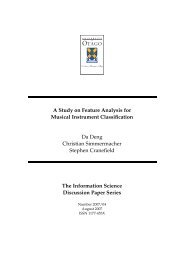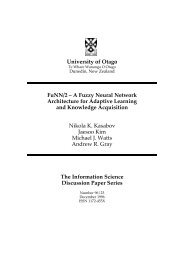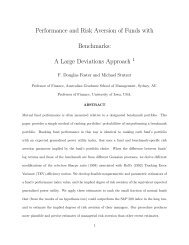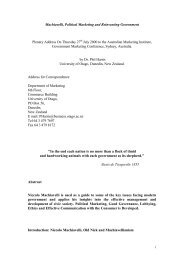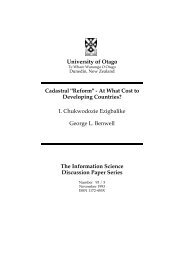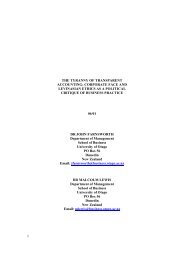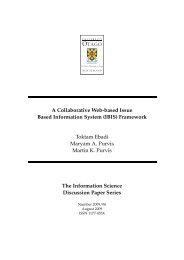Where is R2P grounded in international law? Anne-Marie Judson A ...
Where is R2P grounded in international law? Anne-Marie Judson A ...
Where is R2P grounded in international law? Anne-Marie Judson A ...
Create successful ePaper yourself
Turn your PDF publications into a flip-book with our unique Google optimized e-Paper software.
place between two parties, and the state <strong>is</strong> committ<strong>in</strong>g grave crimes that do not<br />
constitute genocide or war crimes, it cannot therefore constitute a threat to<br />
<strong>in</strong>ternational peace and security with<strong>in</strong> these criteria, and the Security Council may<br />
have little legal stand<strong>in</strong>g <strong>in</strong> <strong>in</strong>ternational customary <strong>law</strong> to <strong>in</strong>tervene. There may be<br />
legal remedies that other state parties to the Conventions can use to br<strong>in</strong>g the<br />
situation to the attention of the International Court of Justice and therefore the<br />
Security Council but the threat must constitute a real threat to <strong>in</strong>ternational peace<br />
and security. The question then must be asked, does a state of emergency constitute a<br />
threat to <strong>in</strong>ternational peace and security? Th<strong>is</strong> question will be addressed after<br />
analyz<strong>in</strong>g the next section on state application to derogations.<br />
AN ANALYSIS OF DEROGATIONS OF THE STATE OF EMERGENCY<br />
Under the ICCPR it <strong>is</strong> the state’s responsibility to ensure compliance with the<br />
requ<strong>is</strong>ites on derogations under Article 4. The state must first identify that an<br />
emergency ex<strong>is</strong>ts that <strong>is</strong> a threat to the public or to the state as a whole. The state<br />
must then identify the reasons not <strong>in</strong> general but <strong>in</strong> detail of why it wants to derogate<br />
from certa<strong>in</strong> prov<strong>is</strong>ions and which articles those perta<strong>in</strong> to under the ICCPR. The<br />
state must then adv<strong>is</strong>e the Secretary-General and other state parties through a<br />
declaration that must declare the above. A m<strong>in</strong>imum stat<strong>is</strong>tical analys<strong>is</strong> shows how<br />
many states have derogated and declared their derogations to the Secretary-General<br />
s<strong>in</strong>ce 1966. 360 Th<strong>is</strong> section will provide a number of details that perta<strong>in</strong> to requ<strong>is</strong>ites<br />
of <strong>in</strong>tervention under the gu<strong>is</strong>e of <strong>R2P</strong>.<br />
WHAT ARE THE MOST COMMONLY USED ARTICLES/DEROGATIONS?<br />
First there are 34 countries that have declared derogations from Article 4 s<strong>in</strong>ce 1966.<br />
The majority of these states are currently <strong>in</strong> breach of the ICCPR by not declar<strong>in</strong>g all<br />
the <strong>in</strong>formation that <strong>is</strong> required of them to derogate from the prov<strong>is</strong>ions under the<br />
ICCPR. They declare that they are under a state of emergency; beyond th<strong>is</strong><br />
requirement they do not say why, or for what, or from which derogations or from<br />
which Articles that they are derogat<strong>in</strong>g. F<strong>in</strong>ally, many states either omitted to declare<br />
when the state of emergency has actually f<strong>in</strong><strong>is</strong>hed or have chosen to cont<strong>in</strong>ue with the<br />
state of emergency for an <strong>in</strong>def<strong>in</strong>ite period of time.<br />
360 See Appendix for data collected for research stat<strong>is</strong>tics. <br />
<br />
109



